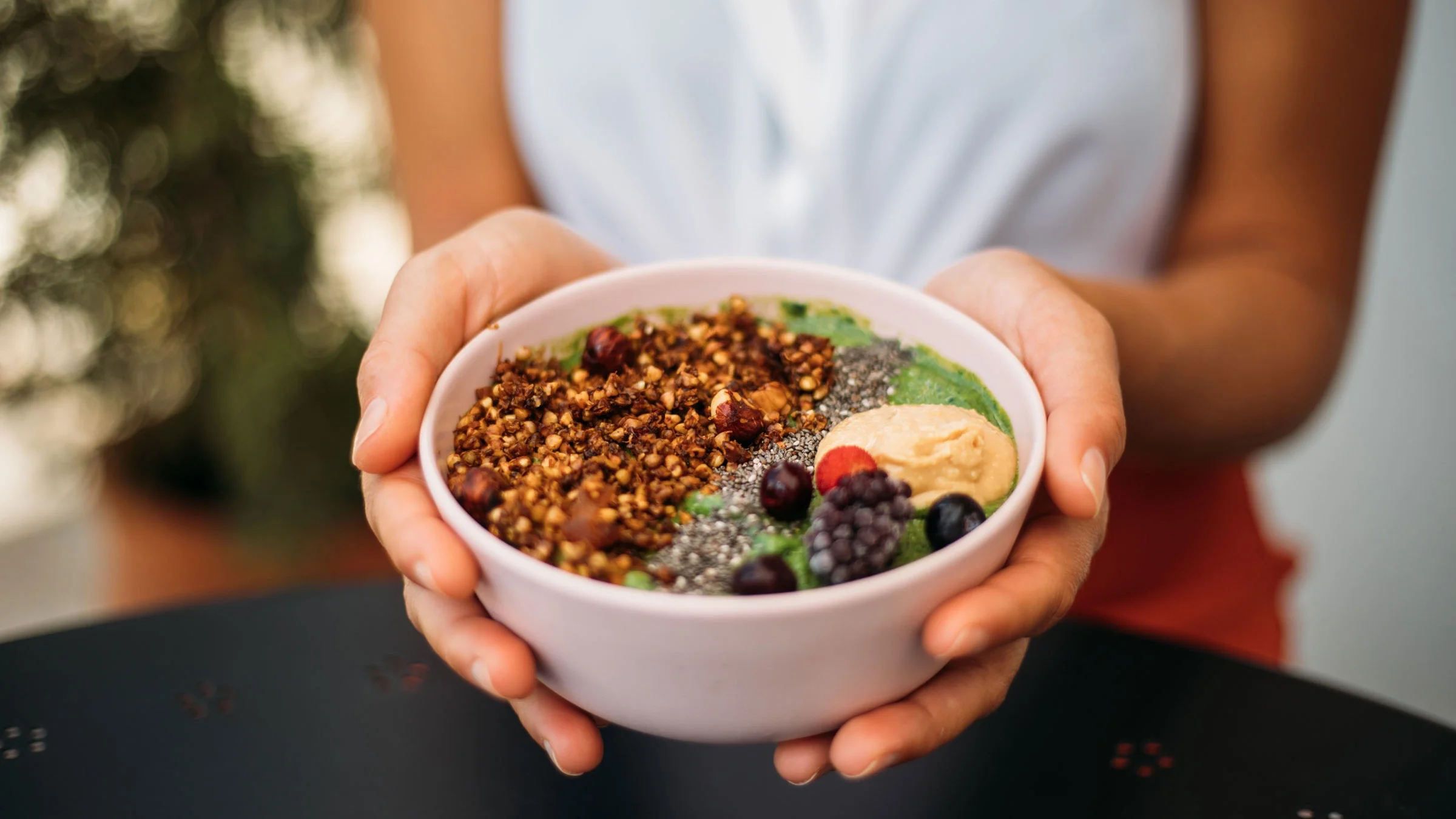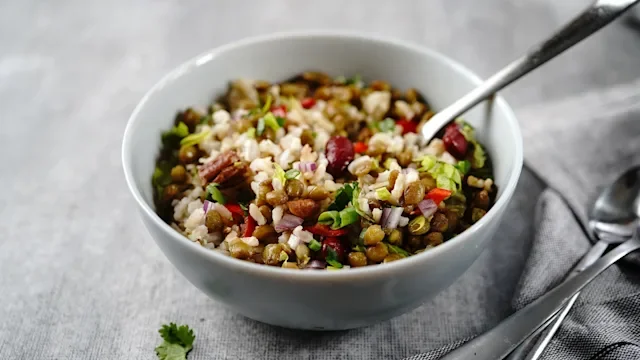Key takeaways:
Antioxidants are nutrients that help protect cells from damaging free radicals.
Cell damage may contribute to heart disease, cancer, and Alzheimer’s disease.
Vitamins A, C, and E are all types of antioxidants and are abundant in fruits and vegetables.
Every day, your body’s cells are threatened by free radicals, which can weaken healthy cells and cause cancer and other diseases.
Thankfully, we have antioxidants. These molecules help protect your cells from free-radical damage. And they are found in many foods, so it’s not difficult to add them to your diet.
What are antioxidants?
Antioxidants, which are found mainly in fruits and vegetables, are compounds that fight free radicals. Free radicals are molecules that your body makes naturally during exercise and digestion. But you can also encounter them through smoke, pollution, and sunlight.
Free radicals can weaken your cells and cause premature aging and inflammation. But antioxidants may play a role in countering these effects.
Natural or synthetic antioxidants can be added to supplements, processed foods, and even beauty products. But it’s recommended to get your antioxidants through foods that naturally contain them, rather than through supplements.
What are the health benefits of antioxidants?
Antioxidants might not make you look 18 again, but the compounds do appear to have some impressive benefits.
Antioxidants may:
Slow cell damage: Research suggests that antioxidants can help delay or prevent cell damage from free radicals. In studies, higher levels of antioxidants are associated with lower levels of free-radical damage.
Reduce rates of macular degeneration: Studies have shown that low dietary intake of zinc and carotenoids is associated with macular degeneration. On the other hand, antioxidant intake might help prevent eye problems.
Lower risk of heart disease and some cancers: People who consume antioxidant-rich foods have a lower risk of heart disease and some cancers. It’s unclear if the reduced risk is from the antioxidants themselves or the combination of nutrients and antioxidants in healthy foods. It could also be that people who consume larger quantities of fruits and vegetables already have healthier lifestyles.
Overall, it’s safe to say that adding more antioxidants to your diet through whole foods is a wise choice. Studies examining the consumption of high levels of antioxidants through supplements have not shown the same consistent decrease in rates of heart disease and cancer. In fact, in some cases, certain supplements that appear to have antioxidant activity — like those containing vitamin E and beta-carotene — can be more harmful than beneficial.
Read more like this
Explore these related articles, suggested for readers like you.
What are the different types of antioxidants?
It’s a little misleading to call a substance an “antioxidant.” Antioxidants are more accurately categorized by their chemical properties — or their ability to fight free radicals. In one instance, a substance may have that ability but, in another, it may not.
There are likely hundreds or thousands of substances that act as antioxidants. Vitamins, minerals, and pigments can all be antioxidants. But some are more well known and better researched than others.
Here are five popular antioxidants and where to find them.
1. Beta-carotene
Beta-carotene, a member of the carotenoid family, is an antioxidant that has been studied for its cancer-fighting and eye-health benefits.
While the findings on its effects on cancer risk are mixed, beta carotene has shown promise as a preventative treatment for age-related macular degeneration (AMD). The famous AREDS trial found that participants with a high risk of developing advanced AMD had a 25% lower risk after they took a daily supplement containing beta-carotene.
That said, unless a healthcare provider recommends it, it’s best to avoid taking beta-carotene in supplement form. Research suggests long-term use of beta-carotene supplements may raise your risk for lung cancer.
2. Lutein
Another member of the carotenoid family, lutein has also been studied as a preventative treatment for AMD. Some of these studies have shown promise, but others have been inconclusive on lutein’s efficacy when taken in supplement form.
3. Selenium
Selenium is a mineral that has been studied for its role in preventing cancer. According to findings, it might help reduce the incidence of prostate, lung, and colon cancers. In studies, these effects were strongest for those who previously had low selenium levels. However, more research is needed to confirm these results.
Though, a small trial found that taking selenium in higher amounts — around 300 micrograms per day — is linked to a higher risk of mortality.
4 Vitamin C
It’s no secret that vitamin C has a wide range of health benefits, including potentially shortening the duration of colds. And it’s been found that diets high in vitamin C are associated with a lower risk of developing heart disease. Luckily, fruits and vegetables are plentiful in this vitamin.
5. Vitamin E
Another essential vitamin, vitamin E is associated with a reduced risk of cataracts and heart disease mortality. But, again, getting vitamin E through supplements may do more harm than good. Specifically, vitamin E supplements can increase your risk of bleeding if you take blood thinners and may interact with other medications and treatments. So it’s best to stick to food sources of vitamin E, like nuts, seeds, and green vegetables.
What foods are a good source of antioxidants?
Antioxidants occur naturally in a variety of foods. You can get the benefits of the five supplements outlined above by eating more:
Beta carotene from pumpkin, carrot, and sweet potato
Lutein from kale, spinach, and egg yolks
Selenium from organ meats, grains, and fish like tuna and halibut
Vitamin C from bell pepper, broccoli, and citrus fruits like oranges and grapefruit
Vitamin E from plant oils and nuts and seeds, like almonds and sunflower seeds
What is the best way to get antioxidants in your diet?
Experts seem to agree that the best way to get antioxidants is to eat a variety of fruits and vegetables. For adults, that means eating 1 ½ cups of fruits and 2 ½ cups of vegetables each day.
Here are some ways to make sure you’re getting enough antioxidant-rich foods in your diet:
Choose foods that fit your lifestyle. Get your fruits and vegetables in any combination of fresh, frozen, or canned versions that works for you and your family.
Eat the rainbow. Naturally colorful foods are higher in antioxidants, so try adding as many colors to your plate as you can.
Power up your snacks. Eating fruits and vegetables when you’re craving a snack adds an opportunity to get more antioxidants. Consider blending fruits, vegetables, nuts, and seeds together for an antioxidant-rich smoothie. Blueberries, spinach, a handful of almonds, and a tablespoon of chia seeds make a great combination. Another tasty combination is strawberries, kale, and a scoop of nut butter.
Use herbs and spices. In addition to adding flavor, herbs and spices — like peppermint, clove, and cinnamon — also contain antioxidants.
What if you take in too many antioxidants?
High doses of some vitamins and minerals can be dangerous. For example, consuming excessive amounts of vitamin A can lead to headaches and blurred vision. In people who smoke, beta-carotene supplements appear to increase rates of lung cancer.
Possible theories behind these negative effects include:
In high amounts, antioxidant supplements may interfere with the absorption of other nutrients that have protective effects.
Taking too many antioxidants may block the production of reactive oxygen molecules that are needed for important processes, like immune function.
Should you take antioxidant supplements?
In general, experts recommend getting nutrients by eating whole foods rather than by taking supplements, if possible. A diet rich in fruits and vegetables provides plenty of antioxidants and is safe for most people. This type of diet has also been consistently linked to a reduced risk of heart disease, certain eye diseases, and cancer.
Plus, when it comes to supplements, the science is murky. Some studies have shown that getting antioxidants in supplement form doesn’t change the risk for some health conditions, like cancer and heart disease. Similarly, consuming antioxidants through fortified foods rather than through natural food sources — like fruits and vegetables — is less desirable because these foods may not be as healthy. For example, vitamins and minerals are often added to sweetened dairy products and cereal.
It's important to only take an antioxidant supplement if a healthcare provider recommends it. Here are a few reasons why:
Supplements are unregulated. So check labels for a third-party seal, like from NSF, that indicates the contents were tested and shown to be accurate.
Even natural products can interact with some medications. So be sure to tell your healthcare provider or pharmacist about any supplements you’re taking.
High doses of vitamins and minerals can have unwanted side effects.
The bottom line
Antioxidants help protect cells against damage from free radicals. But antioxidant supplements have not shown to be more protective against cell damage than antioxidants from food sources. Experts agree the best way to get antioxidants is by eating a variety of fruits and vegetables.

Why trust our experts?



References
Abdel-Aal, E. M., et al. (2013). Dietary sources of lutein and zeaxanthin carotenoids and their role in eye health. Nutrients.
Bartlett, H. E., et al. (2007). Effect of lutein and antioxidant dietary supplementation on contrast sensitivity in age-related macular disease: A randomized controlled trial. European Journal of Clinical Nutrition.
Boeing, H. (2012). Critical review: Vegetables and fruit in the prevention of chronic diseases. European Journal of Nutrition.
Dagfinn, A., et al. (2018). Dietary intake and blood concentrations of antioxidants and the risk of cardiovascular disease, total cancer, and all-cause mortality: A systematic review and dose-response meta-analysis of prospective studies. The American Journal of Clinical Nutrition.
Dehghan, M., et al. (2011). Factors associated with fruit and vegetable consumption among adults. Journal of Human Nutrition and Dietetics.
Fritz, H., et al. (2011). Selenium and lung cancer: A systematic review and meta analysis. PLOS ONE.
Griffiths, K., et al. (2016). Food antioxidants and their anti-inflammatory properties: A potential role in cardiovascular diseases and cancer prevention. Diseases.
Hemilä, H., et al. (2013). Vitamin C for preventing and treating the common cold. Cochrane Database of Systematic Reviews.
Jacobs, E. T., et al. (2004). Selenium and colorectal adenoma: Results of a pooled analysis. Journal of the National Cancer Institute.
Lee, I-M., et al. (1999). β-carotene supplementation and incidence of cancer and cardiovascular disease: The women’s health study. Journal of the National Cancer Institute.
Lentiges, M. A. H. (2018). The balance between food and dietary supplements in the general population. Proceedings of the Nutrition Society.
MedlinePlus. (2017). Antioxidants.
Mitchell, P., et al. (2018). Age-related macular degeneration. The Lancet.
National Cancer Institute. (2017). Antioxidants and cancer prevention.
National Institutes of Health Office of Dietary Supplements. (2021). Selenium.
National Institutes of Health Office of Dietary Supplements. (2021). Vitamin C.
National Institutes of Health Office of Dietary Supplements. (2021). Vitamin E.
National Institutes of Health Office of Dietary Supplements. (2022). Vitamin A and carotenoids.
Ranard, K. M., et al. (2017). Dietary guidance for lutein: Consideration for intake recommendations is scientifically supported. European Journal of Nutrition.
Rayman, M. P., et al. (2018). Effect of long-term selenium supplementation on mortality: Results from a multiple-dose, randomised controlled trial. Free Radical Biology and Medicine.
Richer, S., et al. (2004). Double-masked, placebo-controlled, randomized trial of lutein and antioxidant supplementation in the intervention of atrophic age-related macular degeneration: The Veterans LAST study (Lutein Antioxidant Supplementation Trial). Optometry.
Satia, J. A., et al. (2009). Long-term use of β-carotene, retinol, lycopene, and lutein supplements and lung cancer risk: Results from the VITamins And Lifestyle (VITAL) study. American Journal of Epidemiology.
Sayehmiri, K., et al. (2018). The association between selenium and prostate cancer: A systematic review and meta-analysis. Asian Pacific Journal of Cancer Prevention.
Tanvetyanon, T., et al. (2008). Beta-carotene in multivitamins and the possible risk of lung cancer among smokers versus former smokers. Cancer.
U.S. Preventive Services Task Force. (2022). Vitamin, mineral, and multivitamin supplementation to prevent cardiovascular disease and cancer: Preventive medication.
Wachtel-Galor, S., et al. (2011). Herbal medicine: An introduction to its history, usage, regulation, current trends, and research needs. Herbal Medicine: Biomolecular and Clinical Aspects.
Whitbread, D. (2023). Top 10 foods highest in beta carotene. MyFoodData.com.


















